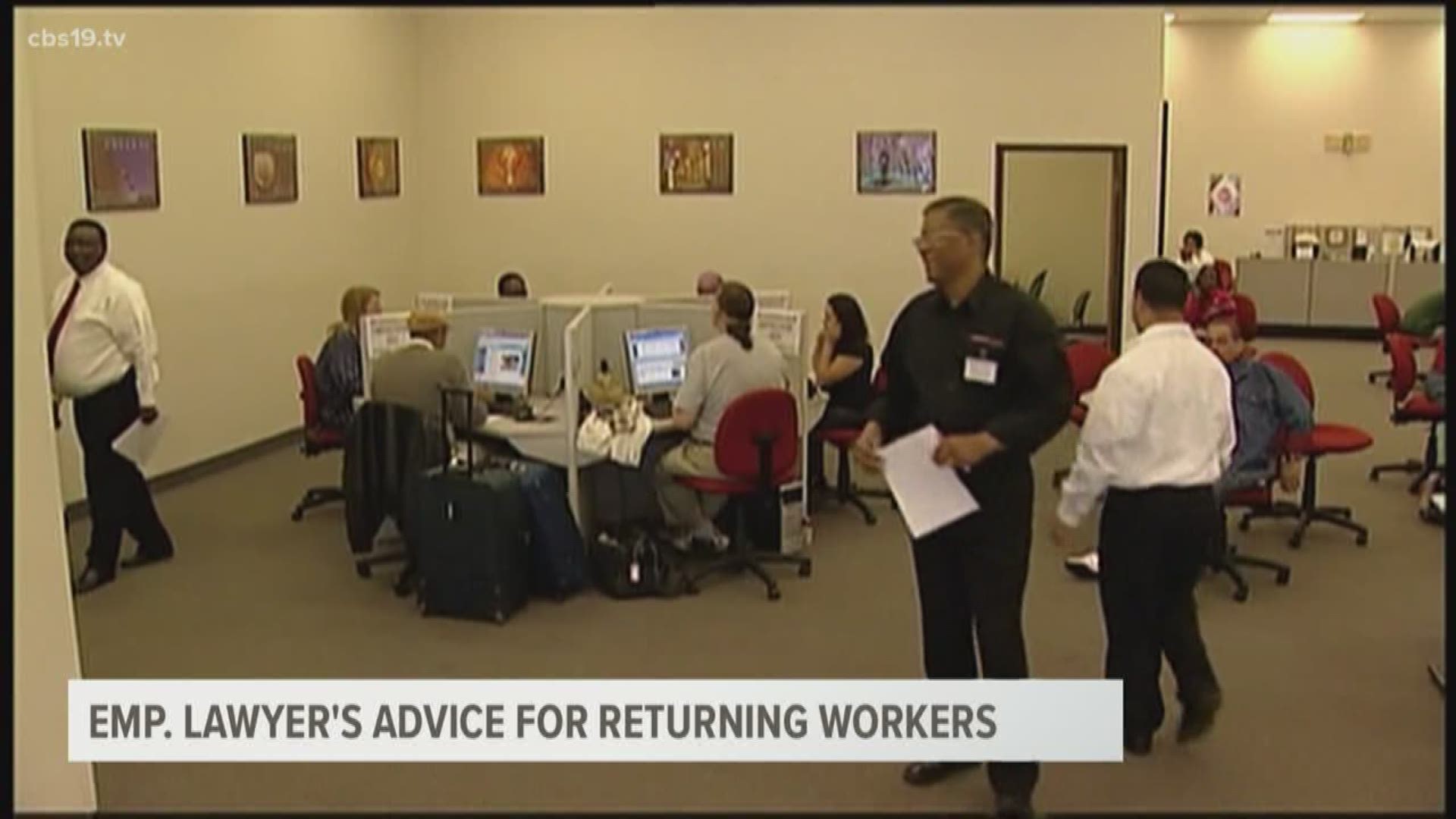TYLER, Texas — Many East Texas businesses can reopen Friday and welcome customers again for the first time since the COVID-19 pandemic forced them to close or modify operations. Several employees told CBS19 they are concerned about going back to work and would rather stay on unemployment.
“It’s natural for people to have concerns about safety in going into work now,” Bill Hommel acknowledged.
And with a couple of days left before retailers, movie theaters, and restaurants reopen, time is running out for many people to decide if they are comfortable going back to work.
However, Hommel, an attorney who specializes in labor and employment law, said Tuesday that sitting out and cashing an unemployment check will not pass muster with the Texas Workforce Commission.
“I mean, they’re not required to accept the offer of employment if they have legitimate concerns about whether or not it’s gonna be safe for them to go back to work,” Hommel stated. “But I think employees are going to have to have a specific reason why they’re uncomfortable about going back to work. I don’t think they’re going to be able to take the position that, ‘I’m just scared to go back to work just because I might get the coronavirus. I think they’re going to have to be able to articulate a specific concern about what the employer is either doing or not doing to protect them from exposure.
“A generalized concern about your health I don’t think is going to be sufficient for you to have a legitimate reason to turn down a legitimate offer of employment.”
If someone is worried about the health impact of going back to work, Hommel says the first thing he would advise them to do is to talk to their boss and learn every aspect of their safety plan.
If their actions will not be sufficient, he says the employee should gather as much evidence as they can because they can file a claim with Occupational Health and Safety Administration or the National Labor Relations Board.
Hommel says workers do have protection against retaliation for waht is called 'concerted actions.'
"And expressing concerns about workplace safety, which would benefit the group, is a protected, concerted activity,” Hommel explained.
If a worker’s hours have been reduced because of coronavirus, they can file for partial unemployment and the state will make up the difference.
However, Hommel says that protection may not apply to restaurant employees. Gov. Greg Abbott’s executive order allowing them to reopen their dining rooms will limit the occupancy to just 25 percent of capacity, which could lead to reduced tips.
“Most restaurants will pay $2.13 an hour and rely upon tips to make up the difference to get the wait staff to at least minimum wage of $7.25 an hour,” Hommel said. “And if they’re not seeing the volume of tips, that may very well be a minimum wage issue.”
Hommel says some restaurants might temporarily increase their staff’s salaries to compensate for a loss of tips, but others would choose to reduce the number of workers on a given shift.
Gov. Abbott said Monday that, of the 1.9 million Texans who have filed for unemployment during the pandemic, 1.6 million of their claims have already been processed, with a payout of approximately $4 billion.

